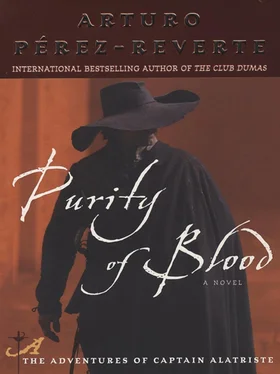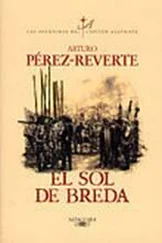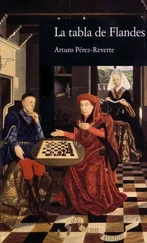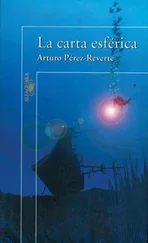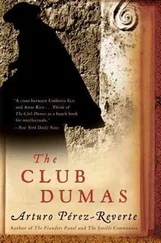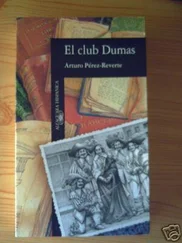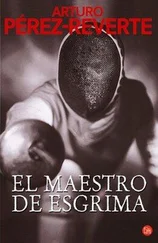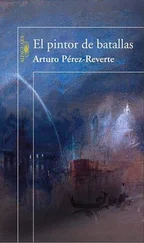Arturo Pérez-Reverte - Purity of Blood
Здесь есть возможность читать онлайн «Arturo Pérez-Reverte - Purity of Blood» весь текст электронной книги совершенно бесплатно (целиком полную версию без сокращений). В некоторых случаях можно слушать аудио, скачать через торрент в формате fb2 и присутствует краткое содержание. Жанр: Старинная литература, на английском языке. Описание произведения, (предисловие) а так же отзывы посетителей доступны на портале библиотеки ЛибКат.
- Название:Purity of Blood
- Автор:
- Жанр:
- Год:неизвестен
- ISBN:нет данных
- Рейтинг книги:3 / 5. Голосов: 1
-
Избранное:Добавить в избранное
- Отзывы:
-
Ваша оценка:
- 60
- 1
- 2
- 3
- 4
- 5
Purity of Blood: краткое содержание, описание и аннотация
Предлагаем к чтению аннотацию, описание, краткое содержание или предисловие (зависит от того, что написал сам автор книги «Purity of Blood»). Если вы не нашли необходимую информацию о книге — напишите в комментариях, мы постараемся отыскать её.
Purity of Blood — читать онлайн бесплатно полную книгу (весь текст) целиком
Ниже представлен текст книги, разбитый по страницам. Система сохранения места последней прочитанной страницы, позволяет с удобством читать онлайн бесплатно книгу «Purity of Blood», без необходимости каждый раз заново искать на чём Вы остановились. Поставьте закладку, и сможете в любой момент перейти на страницу, на которой закончили чтение.
Интервал:
Закладка:
“And that is also true in this case,” the poet admitted.
“By the good Christ, that is fine encouragement you offer me.”
“It would be deceitful to lie to you.”
As he answered, the captain’s sarcasm was palpable. “And how is it that you always become involved in such affairs, don Francisco? Only now have you been returned to the king’s favor following your long dispute with the Duque de Osuna.”
“Therein lies the quid of the quo, my friend,” the poet lamented. “Curse the good nature that leads me into such misadventures. But there are commitments and…my honor is at stake.”
“And your head, you say.”
Now it was don Francisco who looked with mocking amusement at Diego Alatriste. “And also yours, Captain, if you decide to accompany me.”
The “if you decide” was superfluous, and both knew it. Even so, the captain’s pensive smile lingered on his lips. He looked from side to side, skirted a pile of stinking garbage, distractedly greeted a woman with a scandalously low décolletage who winked at him from a wine shop, and finally threw his hands up.
“And why should I do it? My old tercio leaves for Flanders shortly, and I am seriously considering a change of scenery.”
“Why should you do it?” Don Francisco stroked his mustache and his goatee. “Well, by my faith, I do not know. Perhaps because when a friend is in difficulty, we have no choice but to fight.”
“Fight? A moment ago you were rather confident that there would be no dispute.”
The captain had turned to study don Francisco closely. By now the sky over Madrid was growing dark, and the first shadows stretched toward us from the squalid alleyways that led to the plaza. The outlines of objects were beginning to blur, along with the features of passersby. Someone in one of the shops lighted a lantern. Beneath the brim of don Francisco’s felt hat, the light reflected from the lenses of his eyeglasses.
“That is true,” the poet said. “But should something go wrong, perhaps one element that might not be missing would be a bit of swordplay.”
Again he laughed, always in that quiet tone, and with little humor. And at the end, I heard the same laugh from Captain Alatriste. After that, not a word from either. I was in a state of wonderment, knowing I was being led toward new adventures and perils. I followed their dark, hushed silhouettes. Then don Francisco said good-bye, and Captain Alatriste stood alone a moment, motionless and silent in the darkness. I dared not go to him or speak a word. He stood there as if he had forgotten my presence, until the bells in La Victoria tolled nine on the clock.
II. THE NECK AND THE NOOSE
They came the next morning. I heard their footsteps on the creaking staircase that led up from the courtyard, and when I ran to open the door, the captain was already there, in his shirtsleeves and looking very serious. I had observed that during the night he had cleaned his pistols, and that one had been left, oiled and ready, on the table near the beam where his belt with the sword and dagger hung from a nail.
“Go outside for a walk, Íñigo.”
I obeyed, but when I went out into the hall I met don Francisco de Quevedo on the top steps. He was accompanied by three caballeros, though he acted as if he didn’t know them. I noted that they had not used the door on Calle Arcabuz, but the one between our courtyard and Caridad la Lebrijana’s tavern, the entrance on Calle Toledo, which was used less often and was, therefore, more discreet. Don Francisco cuffed me on the cheek affectionately before he went into our rooms, and I continued on along the gallery, but not before I sneaked a quick look at his companions. One was an older man, quite gray. The other two were young, one about eighteen and the other not far into his twenties. Nice-looking youths who bore a certain resemblance to each other; perhaps brothers or close relatives. All three were dressed in traveling clothes, and something about them said “not Madrileños.”
I swear to Your Mercies that I was a well-mannered and discreet young lad. I am not a meddler, nor was I then. But to a boy of thirteen, the world is a fascinating spectacle and he wants to taste every morsel. To that we must add the words I had overheard between Señor de Quevedo and Captain Alatriste the evening before. So if I am to be honest, I must confess that I went around the gallery, pulled myself up to the roof with all the agility of my youth, and, after scooting along an eave to a window, cautiously reentered the house. I squatted at the back of a cupboard in my room, where a certain crack allowed me to see and hear everything that was happening on the other side. I was careful not to make a sound, and determined not to miss a single detail of this business in which, according to don Francisco’s own words, both Diego Alatriste and he were gambling their lives. What I did not know—God save me!—was how I would come within a hair of losing my own.
“You are aware,” the captain was summing up, “that the penalty for breaking into a convent is death.”
Don Francisco de Quevedo nodded but said nothing. He had made the introductions and then stepped aside, letting the visitors speak. Of those three, it was the older man who had led the conversation. He was sitting beside the table that held his hat, a jug of wine no one had touched, and the captain’s pistol.
“The danger is real,” the older man said. “But there is no other way to rescue my daughter.”
I later learned that his name was Vicente de la Cruz; he was from an old family in Valencia and only temporarily in Madrid. He was thin, with white hair and beard, and though he must have been over sixty years old, he was vigorous and erect in his gait. His sons, the elder of whom had yet to see twenty-five, looked very much like him. Their names were don Jerónimo and don Luis. The latter was the younger; already very poised, though not more than eighteen. The three men were wearing simple traveling or hunting garb, the father in a black woolen shirt and blue doublet, and his sons in dark green cloth with trim of the same color. Each carried a sword and dagger in an old-fashioned baldric. Their hair was cut very short, and they shared a candid expression that accentuated the family resemblance.
“Who are the priests?” asked Alatriste.
He was leaning against an exposed beam in the wall, his thumbs hooked into his belt, mulling it all over. His eye was more on Señor Quevedo than the visitors, as if asking him what the Devil he had got him into. For his part, the poet, at the window, was staring at the neighboring rooftops as if none of this had anything to do with him. Only from time to time did he send Alatriste a dispassionate glance—very much the bystander—or study his nails with unwonted attention.
“Fray Juan Coroado and Fray Julián Garzo,” don Vicente replied. “They own and run the convent, and Sor Josefa, the prioress, speaks only through them. The rest of the nuns either have thrown their lot in with them, or live in fear.”
Again Captain Alatriste looked at don Franciso de Quevedo, and this time he caught his eye. I am sorry, the poet’s silence seemed to say. You are the only one who can help me.
“Fray Juan, the chaplain,” don Vicente continued, “is the minion of the Conde de Olivares. His father, Amandio Coroado, founded the convent of the Adoratrices Benitas at his own expense, and is, in addition, the only Portuguese banker the king’s favorite can rely on. Now that Olivares is attempting to cease his dealings with the Genoese, Coroado is his ace card for getting money out of Portugal to fund the war in Flanders. For that reason, Fray Juan, his son, enjoys absolute impunity in the convent and outside it.”
Читать дальшеИнтервал:
Закладка:
Похожие книги на «Purity of Blood»
Представляем Вашему вниманию похожие книги на «Purity of Blood» списком для выбора. Мы отобрали схожую по названию и смыслу литературу в надежде предоставить читателям больше вариантов отыскать новые, интересные, ещё непрочитанные произведения.
Обсуждение, отзывы о книге «Purity of Blood» и просто собственные мнения читателей. Оставьте ваши комментарии, напишите, что Вы думаете о произведении, его смысле или главных героях. Укажите что конкретно понравилось, а что нет, и почему Вы так считаете.
